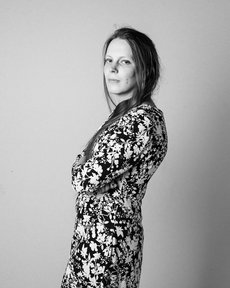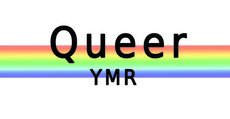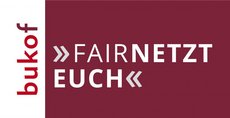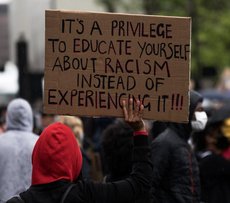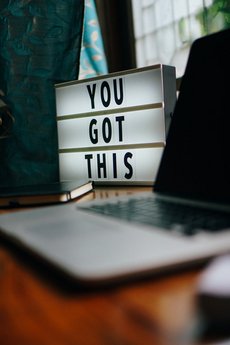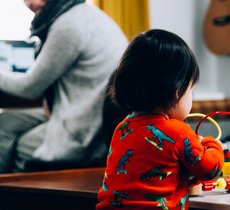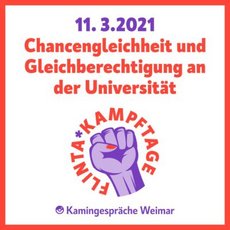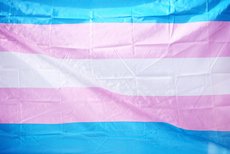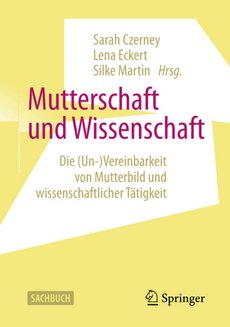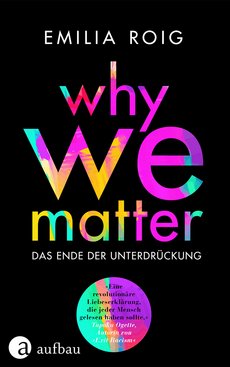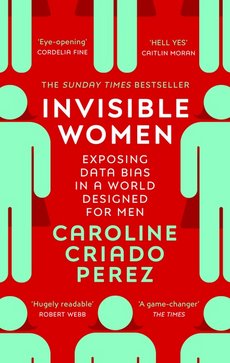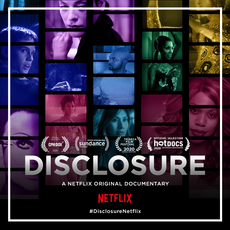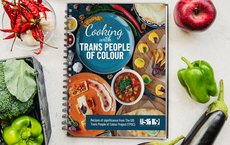
Für die deutschsprachige Version des Newsletters, bitte hier klicken.
Dear readers:
Unfortunately, we had to start the new year the same way we left the old one. The circumstances of the Corona-pandemic are still a source of concern for us, particularly with respect to equal opportunities for women and the so-called work-life-balance. Without a doubt, the last twelve months have been extremely demanding for all members of the university — for students as well as for staff. We acknowledge the difficult situation of people with care-duties, who have experienced a blurring of work and personal lives, as well as of students, some of whom have already had to start their third semester online.
In March, International Women’s Day (March 8th) and Equal Pay Day (March 10th) reminded us of the achievements of the feminist movement and of the still persisting need for action. Here at the university, one persisting challenge is to reach gender parity, which we can still find on the level of undergraduate and graduate students, on the post-graduate and higher career levels as well. With our new Equal Opportunity Plan, which the Senate will ratify in April, we are advocating for a holistic culture change towards a more just and inclusive research and university culture with respect to gender. Introspection is essential to this task: We ask all central and de-central areas of the university to closely examine their work as well as their roles within the university with respect to gender equality over the course of the next six years. In the future, we will also look more closely at the ways in which equal opportunity work intersects with other forms of structural discrimination. To help us advance this process of culture change, we are asking for your feedback and expertise. Please come talk to us and support us in improving our equal opportunity measures! We are looking forward to hearing from you!
The Diversity Department, relies on your support and ideas as well. The audit process »Vielfalt gestalten!« (»Shaping Diversity«), which started last week with a kick-off event, is a great way for you to engage in the intended culture change at the university. The Bauhaus-University Weimar is only one of seven colleges and universities from Thuringia, who undergo the audit process over the course of two years. Under the motto »Vielfalt fördern — Diskriminierung entgegentreten — Chancengleichheit verwirklichen« (»Supporting diversity — opposing discrimination — realizing equal opportunities«), we would like to anchor diversity topics more firmly in all areas, processes, and strategies of the university. Moreover, we want to develop a diversity strategy together that will allow us to actively realize our diversity goals.
As part of the audit process, there will be several internal workshops as well as Thuringia-wide exchange forums designed to support the development of our diversity action plan. Our internal review process is accompanied by the auditor Prof. Dr. Andrea Bührmann, who is also the director of the Institute for Diversity Research at the University of Göttingen. We are looking forward to your active participation in these workshops, your suggestions, and many fruitful and controversial discussions! We will keep you posted on the development of the audit process through our newsletter and other channels of university communication. Please feel free to share your questions, concerns, and ideas with us at any time!
We hope you’ll enjoy the newest edition of our newsletter!
Best regards,
Tina Meinhardt
Equal Opportunity Officer of the Bauhaus-Universität Weimar
Dr. Miriam Benteler
Diversity Officer of the Bauhaus-Universität Weimar
Equal Opportunity Advisor
Dr. Michael Wallner
Equal Opportunity and Diversity Advisor
Franziska Fritsch
Equal Opportunity Office Administration
Table of Contents
INTRODUCTION
In October 2020, Zelda Diedrich (BA Media Art and Design, Faculty of Art and Design, 4th semester) was elected as Student Representative to the Bauhaus-Universität Weimar’s Diversity Advisory Committee. In this position, Zelda has been working as contact person for students from all faculties on the topic of diversity and anti-discrimination in research and teaching. Zelda acts as a spokesperson for students, bringing their suggestions and criticism to the Diversity Advisory Committee. We are pleased to introduce Zelda Diedrich here with a short interview.
The StuKo-unit »Queer YMR« introduces themselves:
»›Queer YMR‹ stands for diversity, solidarity, and community at the Bauhaus-Universität Weimar and beyond.
As a unit of the Studierendenkonvent (StuKo), we see our purpose in being a central contact point/safe space for those who experience exclusion based on their queer identity (or other, intersecting, forms of group membership). We utilise our resources and our political voice to firmly oppose discrimination. We side with students who experience discrimination and try to make their voices heard. Additionally, we organise queer course contents, events, safer spaces, and spaces for communication.
We are always looking for new members who are motivated to work with us.
If you are interested in joining us or have any questions, feel free to send us a DM on Instagram (@queerymr) or an e-mail: queerymr@m18.uni-weimar.de.«
CURRENT ISSUES
 |
With their funding-program »Innovative Frauen im Fokus« (»Focus on Innovative Women«), the German Federal Ministry of Education and Research (BMBF) wants to put a spotlight on women’s contributions to science as well as on their innovative ideas. According to a BMBF press release, the BMBF’s funding program »Innovative Frauen im Fokus« is part of the BMBF’s funding area »Strategien zur Durchsetzung von Chancengerechtigkeit für Frauen in Bildung und Forschung« (»Strategies for the Implementation of Equal Opportunities for Women in Education and Research«) and aims at contributing to the German government’s equal opportunity goals. These entail increasing the opportunities for women in science, research, and innovation to work towards actual equality for women.
The application deadlines are November 30, 2021, and November 30, 2022. For more information, please click here.
 |
On May 8, 2021, the social media team of the University Communications Department interviewed three female students as well as Professor Jutta Emes, Vice President for International Affairs, Diversity and Transfer, about the importance of International Women's Day. You can find video-recordings of these interviews on the Bauhaus Universität Weimar's Instagram page.
As part of their campaign »FairNetzt Euch!«, the Bundeskonferenz der Frauen- und Gleichstellungsbeauftragten der Hochschulen (bukof) has released a publication with »Recommended Actions for Establishing Fair Pay and Fair Working Conditions in University Administrative Offices« (»Handlungsempfehlungen für mehr Entgeltgerechtigkeit und faire Arbeitsbedingungen in Hochschulsekretariaten«). The recommendations are mainly directed at university leadership. They outline the scope of action and identify various instruments for working towards fairer work-conditions in university administrative offices.
You can find the bukof-publication as well as more information on the bukof-campaign »FairNetzt Euch!« (in German language) here.
ANNOUNCEMENTS
This summer, just like last year, there will be a course on discrimination and diversity as part of the Bauhaus.Module. In this course, which is open to students from all faculties, participants will learn about different forms of oppression and discrimination, and get tools to reflect on social power-structures and their own biases. The module was designed in cooperation with Jun.-Prof. Alexandra Toland, Jun.-Prof. Julia Bee, Anke Schulze from the International Office, as well as Dr. Miriam Benteler and Dr. Michael Wallner from the Diversity Office. The course is taught by Margarita Garcia, PhD candidate in the Faculty of Art and Design, in cooperation with various external lecturers.
More informationen and registration: Bauhaus.Module Website.
On May 4 and 6, from 9:30 AM to 1:30 PM, the Equal Opportunity Office and the Bauhaus Research School are presenting a work-life-balance workshop for female academics affiliated with the Bauhaus-Universität Weimar.
In this workshop, participants will consider their various personal and professional roles and how to balance these demands. Through self-reflection, individual exercises, and group exchange, the workshop will guide participants through an assessment of their personal values and priorities, and help them build a plan to integrate their personal and professional goals and responsibilities. Moreover, the workshop will introduce strategies of resilience to help participants adapt to the stress of managing a successful career in research and handling the demands of multiple roles with changing responsibilities.
Síofra McSherry will teach the workshop in English. The number of participants is limited to 12 people. Female academics working at the Bauhaus-Universität Weimar can register here by April 14.
According to §12 of Germany’s Anti-Discrimination Law (AGG), every organization is required to take appropriate measures to prevent sexual harassment in the workplace.
For this reason, on September 24, 2021 the Equal Opportunity Office offers a workshop on how to deal with sexual violence and harassment at the Bauhaus-Universität Weimar. It addresses the following questions:
What counts as sexual harassment in the workplace (incl. facts and numbers)? What are causes and consequences of sexual harassment in the workplace? What are the rights and responsibilities of people who have experienced sexual violence or harassment? What possible actions can equal opportunity officers take? How does one best proceed in cases of assault/suspicion/complaints? How can one get institutional support in one’s organization/in the process run?
Dr. Iris Koall and Dr. Michael Tunç will teach the workshop in German. If you’d like to register for the workshop, please send an email to: michael.wallner@uni-weimar.de. Registration deadline is 31.08.2021.
On October 15th and 16th the Equal Opportunity invites (future) mothers and father working in academia to participate in the PD session: »Work/Family-Life-Integration in Academia«. The two consecutive workshops are intended for Doctorate Candidates and Post-Docs and the tackle the question: »Having a career and children — how can it work?«
Participants reflect on their own professional and life situations by means of biographical methods, integration models, target-means-analyses, as well as tools for resource-analysis and career-/life-planning. Through these exercises, they also consider how the ambivalences and tensions between their professional and family lives emerge in and through social relations. Through concrete model-scenarios and models for communicating with executives and supervisors, participants learn to be more self-confident in negotiations. The workshop is taught in German language by family-coach and supervisor Dr. Iris Koall as well as by researcher and educator Dr. Michael Tunç, who specializes in gender studies.
If you’d like to register for the workshops, please send an email to: michael.wallner@uni-weimar.de. Registration deadline is the 15.09.2021.
 |
On September 13 and 14 the Equal Opportunity Office offers a PD program on committee work for women in academia.
A critical awareness of one’s own gendered position is a basic requirement for women who want to be seen as »competent« in their interactions with others. Behaving in stereotypical ways can have positive as well as negative consequences. In two consecutive workshops, Dr. Iris Koall will share empirical knowledges that can help participants to better understand gender images and hierarchies that play out across the different spheres of academic life. To enable them to present themselves and their concerns and demands more effectively, participants will also learn to analyze communicative, interactive, and micro-political processes of committee work with respect to gender—for instance, the goal-oriented use of networks, or the formation of alliances and exclusions.
The workshops are taught in German. If you’d like to register for the workshop program, please send an email to: michael.wallner@uni-weimar.de. Registration deadline is the 31.08.2021.
DOCUMENTATION
As part of the FLINTA-Kampftage (days of struggle for the rights of women, lesbians, inter, non-binary, trans and agender people) on occasion of International Women’s Day, the student initiative »Kamingespräche Weimar« of the Faculty of Architecture and Urban Studies hosted a digital debate on equal opportunities and legal equality at the university. Prof. Dr. Jutta Emes (Vice President for International Affairs, Diversity and Transfer), Tina Meinhardt (Equal Opportunity Officer), Dr. Michael Wallner (Equal Opportunity and Diversity Advisor), and Jonathan Mürmann (StuKo-Unit Queer YMR) took part in the discussion.
After some input on the current state of equality for women at the university from the hosts Lisa Hamberger and Friederike Kamm, the other panelist had the chance to introduce themselves and their work-areas. Amongst other issues, the following discussion with the ca. 40 guests took up the question of the relationship between equal opportunity and diversity measures at the university. Other topics of discussion were the question of how to deal with opponents of gender-sensitive language, structural barriers for trans/inter/non-binary people at the university, calls for a more diverse selection of library contents, as well as possibilities for cooperation between student initiatives and institutional equal opportunity actors at the university.
DID YOU KNOW?
March 31, 2021, marks the celebration of the 13th »International Transgender Day of Visibilty« (ITDoV). The globally observed event was founded in 2009 by U.S. activist Rachel Crandall-Crocker. Crandell-Crocker is also the co-founder of Transgender Michigan and the Transgender Michigan Helpline — the first helpline for trans people in the US. The purpose of the »International Transgender Day of Visibilty« is to celebrate the Trans Communities and their accomplishments, and to bring awareness to their continued struggle for social, political, and legal equality.
If you’d like to learn more about Rachel Crandall-Crocker and the history behind the »International Transgender Day of Visibilty«, you can watch a short speech by the activist here on YouTube.
LITERATURE TIPS
The book »Mutterschaft und Wissenschaft: Die (Un-)Vereinbarkeit von Mutterbild und wissenschaftlicher Tätigkeit« (»Motherhood and Science: The (Ir-)Reconcilability of Motherhood and Scientific Work«), edited by Sarah Czerney, Lena Eckert und Silke Martin, brings together the voices of scientists, whose personal accounts deal with the question: »to have children or not (wanting) to have children«. These stories explore how identity positions arising from different systems of domination intersect with each other and lead to conflicts in the authors’ public and private spheres: The authors write about their experiences as self-optimizers, professors, activists, partners, commuters, daughters, connoisseurs of the art of living, jugglers, and feminists, as well as about the (im)possibilities of inhabiting all of these identities at once. Moreover, they address and question the still dominant image of »the mother« in Germany. The contributions come from various scientific disciplines – from the STEM-disciplines as well as from the humanities and social sciences.
The three editors — all of them mothers working in academia — used to be research associates at the Bauhaus-Universität Weimar. In their highly acclaimed publication, they have also included the voices of several current members of the university's various faculties.
How do we become aware of our privileges? How can white people comprehend the lived realities of Black people? Muslim men those of white women? And white women those of Muslim men? In »Why We Matter« (German language only), activist and political scientist Emilia Roig shows how everyday racism intersects with other forms of oppression. She shares with her readers how racism and Black Pride, antisemitism and Auschwitz, homophobia and queerness, patriarchy and feminism have clashed at times in her own family life. Roig also illustrates how racism plays out across different social institutions, like the university or the court house, as well as in everyday situations, like personal encounters in the street. She troubles social conditions we often deem »normal« — such as the societal privileging of marriage, of the male body in medical research, or of the Classical cultural canon — and helps us imagine our world differently.
If you'd like to learn more about Emilia Roig and her book, you can find a video of the online book launch of »Why We Matter« (recorded at the Maxim Gorki Theater Berlin and moderated by Alice Hasters) here.
Imagine a world where your phone is too big for your hand, where your doctor prescribes a drug that is wrong for your body, where in a car accident you are 47% more likely to be seriously injured, where every week the countless hours of work you do are not recognized or valued. If any of this sounds familiar, chances are that you’re a woman.
Invisible Women shows us how, in a world largely built for and by men, we are systematically ignoring half the population. It exposes the gender data gap — a gap in our knowledge that is at the root of perpetual, systemic discrimination against women, and that has created a pervasive but invisible bias with a profound effect on women’s lives.
Award-winning campaigner and writer Caroline Criado-Perez brings together for the first time an impressive range of case studies, stories and new research from across the world that illustrate the hidden ways in which women are excluded from the very building blocks of the world we live in, and the impact this has on their health and wellbeing. From government policy and medical research, to technology, workplaces, urban planning and the media — Invisible Women reveals the biased data that excludes women. In making the case for change, this powerful and provocative book will make you see the world anew.
ONLINE LITERATURE TIPS
The effects of the Corona-pandemic pose tremendous challenges for university staff and students with family duties. A recent publication by CHE Centrum für Hochschulentwicklung (German language) demonstrates which measures to reconcile work/studies and family-life have proven useful in the current crisis.
According to a survey by CHE Centrum für Hochschulentwicklung (German language), German higher education leadership is a quite homogenous group: The typical administration is male, 57 years old, and from Western Germany. For this survey, CHE analyzed the CVs of about 300 sitting presidents and rectors from higher education institutions.
The current issue of the journal »Forschung & Lehre« (3/21) (German language) is dedicated to the subject of »Equal Opportunity Measures for Women in Science«.
The selected issues chapter of the Bundesbericht Wissenschaftlicher Nachwuchs 2021 is titled »Karriereverläufe Promovierter — zur Multifunktionalität der Promotion« (»Career Paths of Post-Docs — On the Multifunctionality of Doctorate Degrees«). With this focus, the report examines what kinds of careers PhDs pursue post graduation, and what kinds of benefits they reap from their Doctorate degrees in the course of their careers.
In their study »Mittelbare Diskriminierung im Lohnsteuerverfahren: Auswirkungen der Lohnsteuerklassen auf Nettoeinkommen und Lohnersatzleistungen« (»Indirect Discrimination in Income Tax Proceedings: Effects of Income Tax Brackets on Net Income and Benefit Replacement Rates« — German language only), Prof. Dr. Gisela Färber and Corinna Späth calculate the differential distributional effects of income tax proceedings on net income and benefit replacement rates in the German context. Dr. Ulrike Spangenberg then looks at their findings from a constitutional law perspective. Overall, the publication demonstrates the urgent need for reform of existing regulations for income tax proceedings.
The Hans-Böckler-Foundation’s publication offers knowledge for orientation that can also guide action towards devising tax frameworks that are better equipped to meet the diverse life and work realities of men and women, families, and couples. Moreover, its findings provide valuable information for reducing inequalities in accessing social security benefits.
TV GUIDE
According to the Netflix documentary’s official homepage, »Disclosure: Trans Lives on Screen« (2020) is »an unprecedented, eye-opening look at transgender depictions in film and television, revealing how Hollywood simultaneously reflects and manufactures our deepest anxieties about gender. Leading trans thinkers and creatives, including Laverne Cox, Lilly Wachowski, Yance Ford, Mj Rodriguez, Jamie Clayton, and Chaz Bono, share their reactions and resistance to some of Hollywood’s most beloved moments. Grappling with films like ›A Florida Enchantment‹ (1914), ›Dog Day Afternoon‹, ›The Crying Game‹, and ›Boys Don’t Cry‹, and with shows like ›The Jeffersons‹, ›The L-Word‹, and ›Pose‹, they trace a history that is at once dehumanizing, yet also evolving, complex, and sometimes humorous. What emerges is a fascinating story of dynamic interplay between trans representation on screen, society’s beliefs, and the reality of trans lives. Reframing familiar scenes and iconic characters in a new light, director Sam Feder invites viewers to confront unexamined assumptions, and shows how what once captured the American imagination now elicit new feelings. ›Disclosure‹ provokes a startling revolution in how we see and understand trans people.«
»Disclosure: Trans Lives on Screen« is available for streaming on Netflix. You can watch the official trailer here.
FOOD FOR THOUGHT
On occasion of the International Transgender Day of Visibility, the Toronto-based Trans People of Color (TPOC) Project has released an educational cookbook, titled »Cooking with Trans People of Colour.« The cookbook, which was compiled by and for racialized trans people, is a collection of meaningful recipes curated by the TPOC project team. It features unique sections including cooking and eating on a budget, hormones and healthy eating for trans folks, as well as resources and sexual health promotion information to support racialized trans folks.
The Trans People of Colour Project is a three-year project funded by the Toronto Urban Health Fund. The project is designed to foster affirming support, greater access to food security, and access to meaningful sexual health promotion information for racialized trans folks.
Click here to download the educational cookbook.
